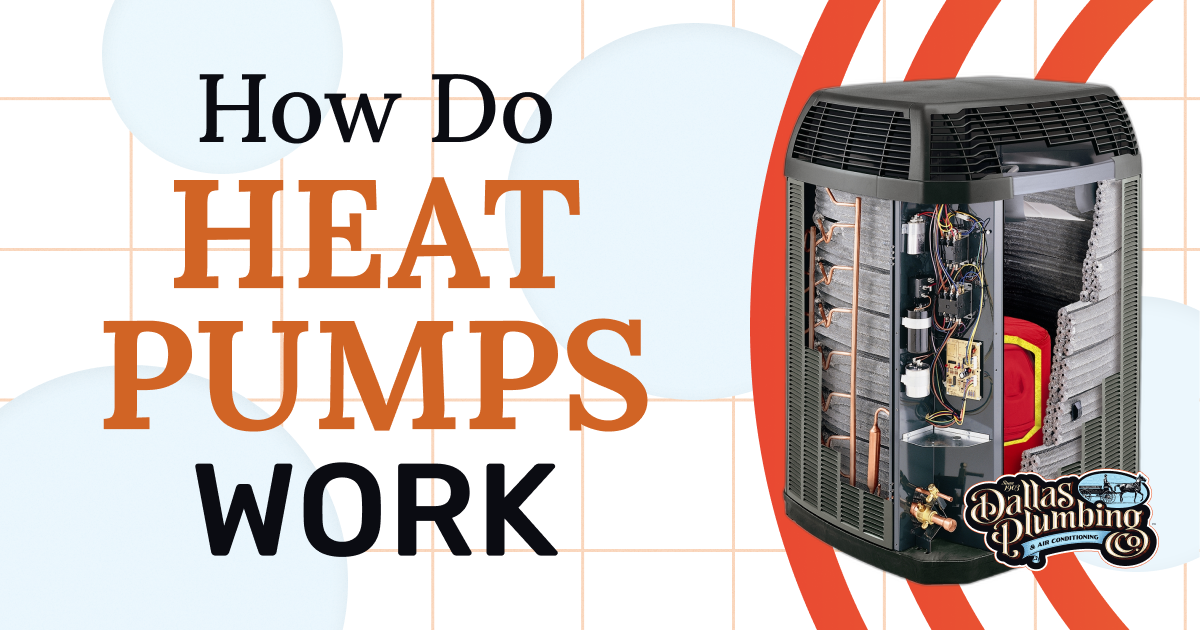I asked more and more conversations come up around the world and in our country about energy efficiency and environmentally friendly solutions; the HVAC industry continues to roll out better solutions for heating homes and buildings in a more environmentally friendly way.
In recent years, heat pumps have emerged as a popular solution that continues to catch the attention of many homeowners and even businesses that require heating and air-conditioning in their homes and buildings.
Heat pumps are versatile and can operate in various climates, making them an essential part of HVAC systems. In this blog, we will explore the inner workings of heat pumps, how they work during the winter, and break down the different types of heat pumps available on the market. If you’re in the market for a heat pump system for your home, read along to learn everything you need to help heat pumps work.
Heat Pumps Defined
Heat pumps are mechanical devices that transfer heat from one location to another. In the winter, heat pumps extract heat from the outside environment, either from the air, ground, or water, and transfer it indoors to provide warmth. During the summer months, this process is very first. The heat inside the home will be extracted by the heat pump and released outside, allowing the space to cool down.
Types of Heat Pumps Available
As we already mentioned, heat pumps are very versatile because they can extract or transfer heat in three different ways: air, ground, or water. Below, we will briefly go over these three types of heat pumps.
Air Source Heat Pumps
Air source heat pumps dry heat from the outdoor air. They effectively function in cold weather, but their efficiency decreases as temperatures drop. To maintain indoor comfort and extreme cold, supplementary heat sources like electric resistance heating units are often used. Homeowners also use a furnace to supplement the heating from air-source heat pumps.
Geothermal Heat Pumps
Ground source heat pumps are commonly known as geothermal heat pumps. These systems are efficient because they extract heat from the ground, which is typically more stable than the air.
Water Source Heat Pumps
Water source heat pumps are commonly used when the home or building is next to a body of water, such as a lake or a well. The heat pump will extract the temperatures from the body of water to use for heating or cooling a home.
How Do Heat Pump Systems Work?
As with any air conditioning system, heat pumps rely on the mechanical components within their system to cycle the air appropriately. Let’s look at how the air cycles through a heat pump system and provides a comfortable atmosphere for each home.
Refrigeration Cycle
Many air conditioning systems rely on a refrigeration cycle, and so do heat pumps. Refrigerant fluid flows between two coils on the inside and the outside units. The outdoor coils absorb heat from the air, ground, or water source and then carry it to the indoor coil.
Compression and Expansion
Within the system, the refrigerant is compressed. This function raises the temperature of the refrigerant and causes it to expand and lower its temperatures. This process allows a heat pump to move heat from one location to another effectively. This process allows a heat pump to move heat from one location to another effectively.
Reversing Valve
The heat pump is also equipped with a reversing valve. This valve helps change the direction of the refrigerant flow. It allows the heat pump system to provide dual functions of heating and cooling the home. In the heating mode, it moves heat indoors, and in the cooling mode, it forces the heat outside.
Contact Dallas Plumbing for your Top Local Heat Pump Services!
Are you in the process of shopping for a heat pump for your property? Learn about the tax credits, promotions, deals, and specials you can use for your heat pump installation. Contact Dallas Plumbing & Air Conditioning today for a free quote and to learn more about the benefits of heat pump systems.
FAQ: Heat Pumps
What temperature is too cold for heat pumps?
A heat pump system will work perfectly and highly efficiently until the outdoor temperatures fall below 40°. If you live in a climate where temperatures drop below 40°, you may need an additional heating system to provide optimal warmth in your home.
What is the 20-degree rule for heat pumps?
Never set your thermostat for a temperature that is 20° cooler than the outside air. Heat pumps are designed to handle only up to a 20° difference in temperatures between the outside and inside air.
Should I turn off my heat pump in extreme cold?
This is not necessary as it will not damage the heat pump. However, consider adding supplemental home heating systems to ensure that your home is comfortable and that the heat pump is supported with the needed warmth.






